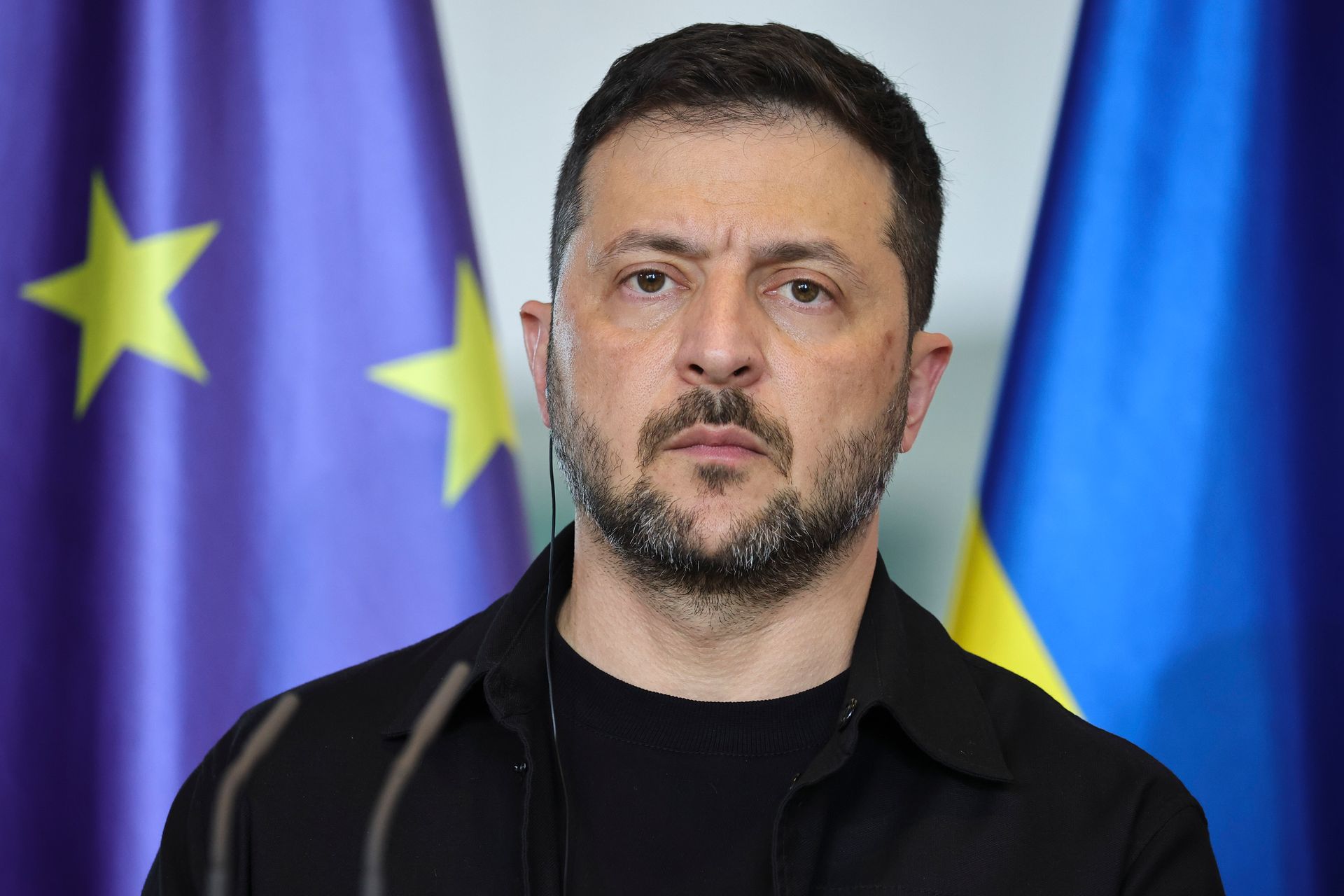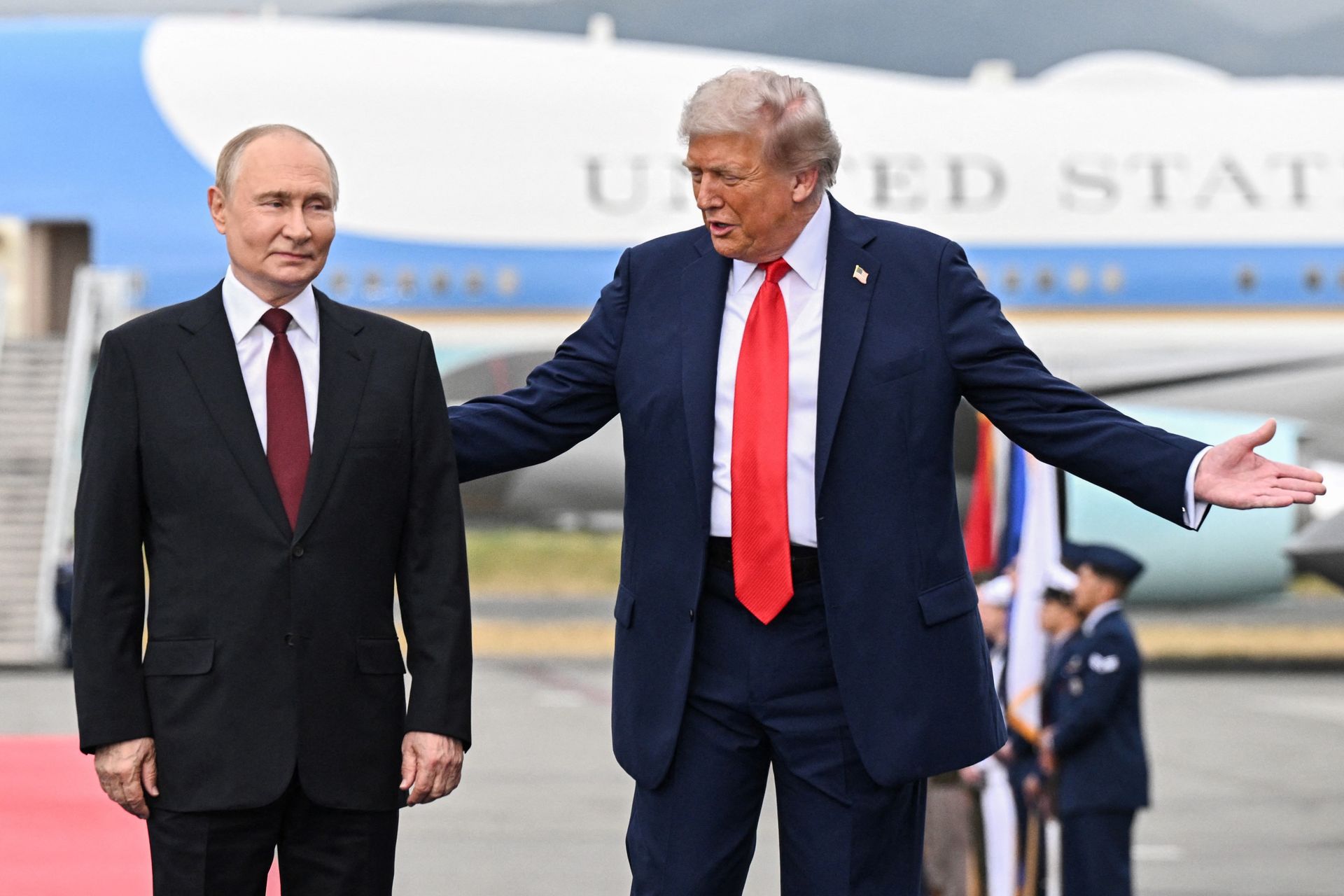In Ukraine, democracy finds its fiercest defenders

Ukrainians protest against a new law undermining the independence of anti-corruption institutions outside the Presidential Office in Kyiv, Ukraine, on July 24, 2025, amid the ongoing Russian invasion. (Maxym Marusenko/NurPhoto via Getty Images)

Cory Alpert
Much of recent Western history contains the story of democracy stumbling.
Crisis after financial collapse, after war, over the last two decades has fostered a deep dissatisfaction, leading societies toward simpler rules and clearer enemies.
It’s an appealing proposition in a world whose rules seem to shift daily, where governments struggle to keep pace. We shouldn’t be surprised that political systems built in the 18th and 19th centuries are buckling under the weight of modern life.
We would never expect a temple to last so long without renovations.
Authoritarianism in the West doesn’t usually arrive dramatically, overthrowing a democratic government overnight. Instead, authoritarians are elected on promises to hollow out democratic institutions: to name an enemy, to deliver punishment, and to restore a lost sense of identity. It’s seductive.
Many are willing to trade liberty for safety — though any society that trades one for the other deserves neither.
The West suffers from a kind of historical amnesia. America had never seriously confronted authoritarian rule until now, and Western Europe has passed generations without immediate threats.
Even in Eastern Europe, where memories are fresher, societies gradually forget.
But these rights — this idea of democracy — is not abstract in Ukraine. It’s not the trivial fear of a bureaucrat in Brussels being heavy-handed in regulating the shape of a pillow; it’s the immediate reality of an authoritarian regime killing civilians — friends and neighbors — to impose its will on free people.
Ukraine has stood at the front line of democracy’s struggle for decades.
When a Russian-backed president tried to turn against his people’s will to align with Europe, Ukraine revolted. They turned that president’s vacation home into a museum, a kind of effigy to warn any other pretenders who are actually in charge.
Ukraine is radicalizing itself — not toward authoritarian simplicity, but toward a fierce, active insistence on democracy.
Russian President Vladimir Putin’s reaction — to invade and annex parts of the country — triggered a fierce resistance that transformed Ukraine into a place where democracy is something tangible, worth fighting and dying for.
Even in war, when even committed democrats might overreach their authority, Ukrainians have shown they’ll defend their democracy from threats internal or external.


In recent protests, when President Volodymyr Zelensky tried to defang the anti-corruption institutions, protests broke out, with popular chants being the lyrics from a Zhadan i Sobaky song — “Why the f*ck do I need a system that works against me?”
Nowhere in Ukraine is the war distant.
Even in Kyiv, violence can appear at your doorstep without warning, and the human cost is felt deeply.
Walking along the banks of the Dnipro River last week, I was fed exaggerated stories of the democratic values of Ukrainian folk heroes — a reimagining of Ukraine’s past to give its current fight a myth powerful enough to fight from. The truth of the story doesn’t really matter — myths are never meant to be facts.
The point was that Ukraine is radicalizing itself — not toward authoritarian simplicity, but toward a fierce, active insistence on democracy.
Often, countries under existential threat allow themselves to slide toward dictatorship or military juntas, grasping at shallow facades of democracy — an occasional rigged election, an opposition candidate allowed to win, who then mysteriously disappears when they grow a little too outspoken.
Ukraine’s response has been profoundly different. The Ukrainian people demand a system as unlike Russia’s as humanly possible.
The global democratic future may well be unfolding in Ukraine. At its core, Russia invaded Ukraine, believing Kyiv would quickly fall, allowing Putin a Soviet revival as a hero of the empire.
Instead, a smaller nation has halted a major power because its people are driven by the idea that democracy is something they alone own and must protect.
Speak to Ukrainians today and you’ll find exhaustion and rage about sleepless nights under drone-filled skies.
But beneath it is a righteous anger typically reserved for zealots imposing their views through violence. Here, it’s directed toward something nobler: the passionate defense of the radical idea that democracy is worth the fight.












